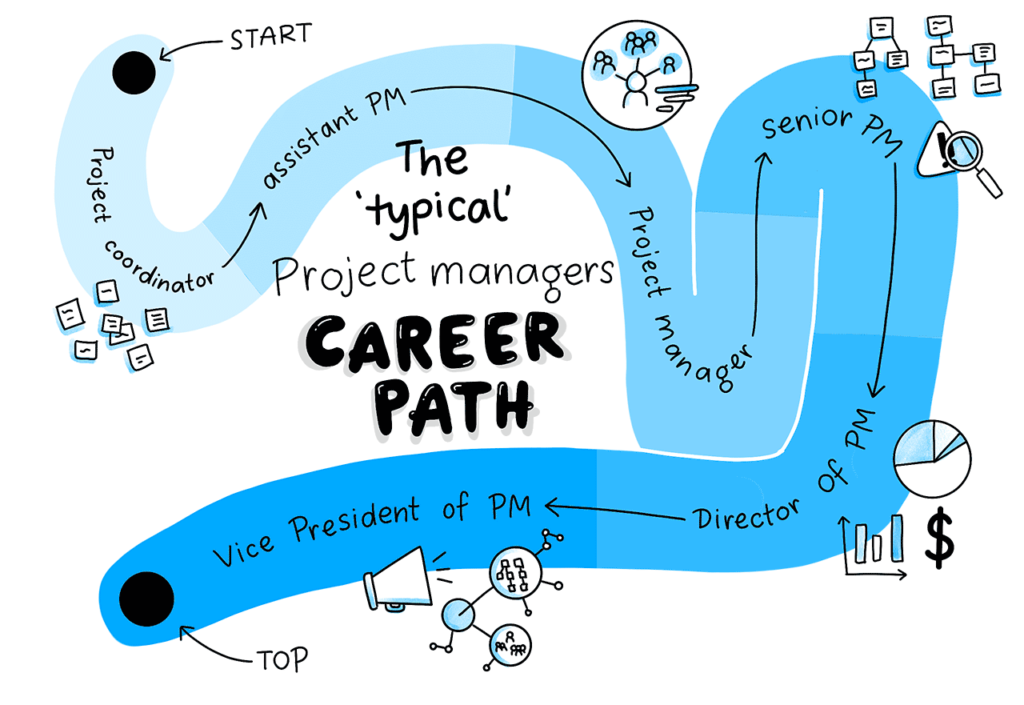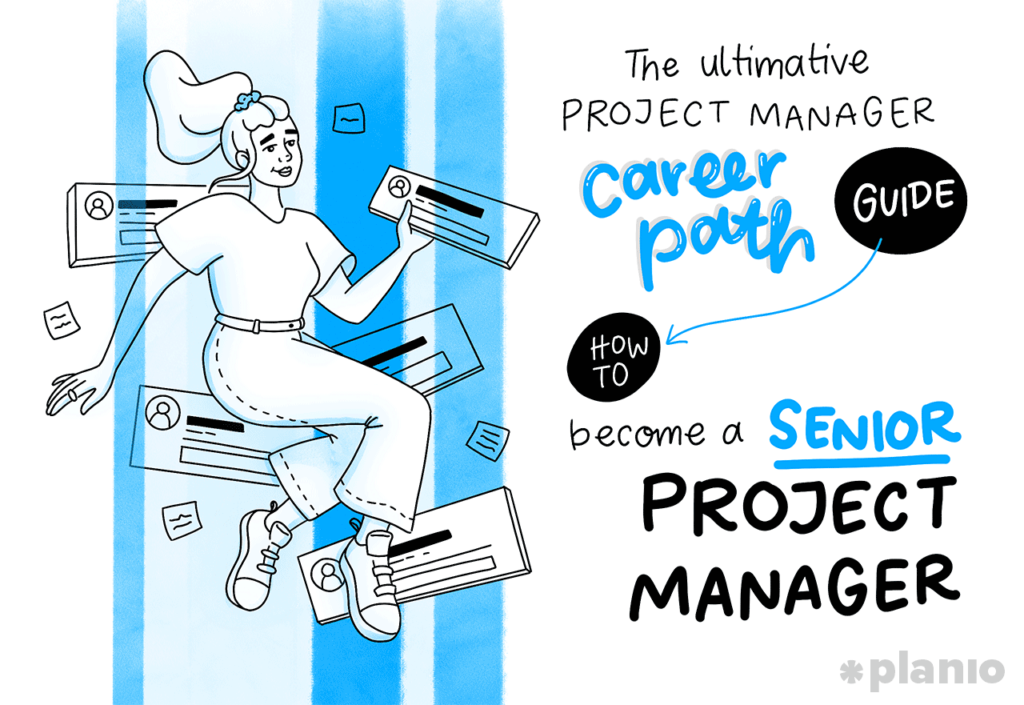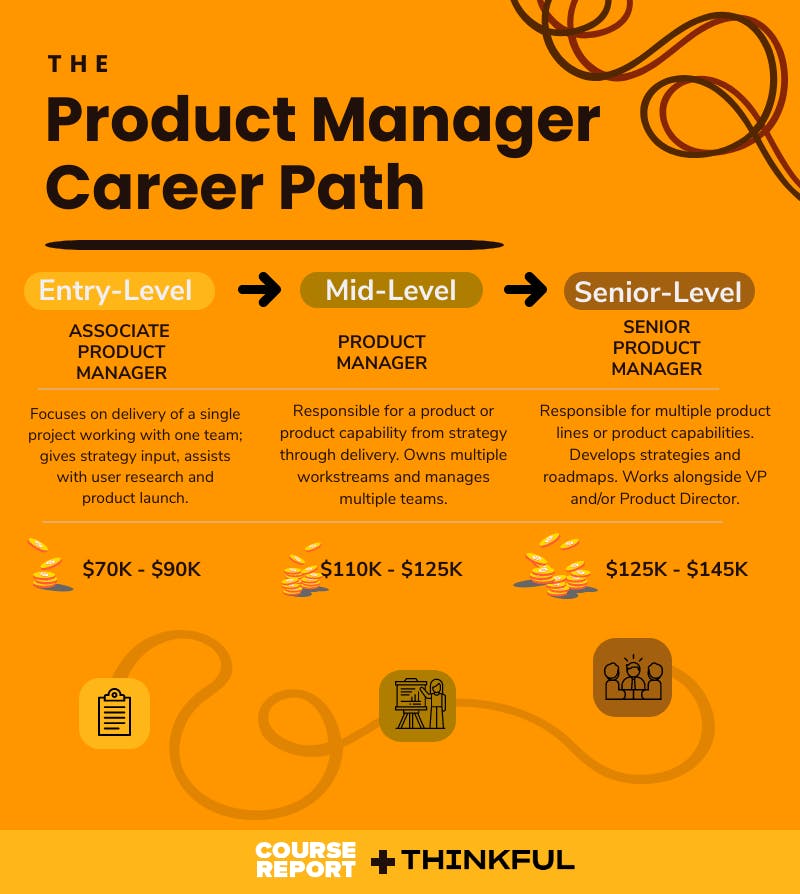
So, you’ve been considering a career in project management but don’t have any prior experience? Don’t worry, you’re not alone! Starting a career in project management may seem daunting at first, but with the right steps and mindset, you can pave your way to success. In this article, we will guide you through the essential steps and strategies to kickstart your journey in project management, even if you don’t have any previous experience. From acquiring foundational knowledge to building practical skills, we’ve got you covered. Let’s begin your exciting adventure into the world of project management!
Research and Understand the Field of Project Management
Learn the basics of project management
To start a career in project management, it is essential to have a strong foundation in the basics of project management. Familiarize yourself with the key principles, terminology, and methodologies used in project management. Understand the core concepts such as defining project objectives, creating a project plan, managing resources, and monitoring progress. There are numerous online resources, books, and courses available that can help you grasp the fundamentals of project management.
Identify the different roles and responsibilities in project management
Project management encompasses various roles and responsibilities, and it is crucial to understand each of them to excel in this field. Familiarize yourself with key positions such as project manager, project coordinator, team leader, and other supporting roles. Understand the specific tasks and responsibilities associated with each role. This knowledge will help you identify which role aligns best with your skills and interests.
Understand the importance of project management in various industries
Project management is a critical aspect of almost every industry. It ensures the successful execution of projects, meeting deadlines, and achieving desired outcomes. Research different industries and understand how project management contributes to their success. Whether it is construction, IT, healthcare, or any other field, project management plays a vital role in effectively managing resources, minimizing risks, and delivering quality results. Understanding the relevance of project management across industries will help you explore diverse career opportunities.
Research the skills and qualifications required for a career in project management
To be successful in project management, certain skills and qualifications are highly valued by employers. Research and identify the key skills required in this field. Some of the essential skills include leadership, communication, analytical thinking, problem-solving, time management, and teamwork. Additionally, many employers look for project management certifications such as the Project Management Professional (PMP) certification. Familiarize yourself with the desired qualifications and identify the areas where you need to develop or enhance your skills.
Gain Knowledge and Skills in Project Management
Consider pursuing a project management certification
Obtaining a project management certification can significantly enhance your chances of starting a career in project management. Certifications like the PMP, Certified Associate in Project Management (CAPM), or PRINCE2 demonstrate your proficiency in project management methodologies and best practices. Research different certifications and choose the one that aligns with your career goals and aspirations. The certification process typically includes studying relevant materials, passing an exam, and fulfilling certain professional experience requirements. Invest time and effort in preparing for the certification to enhance your project management credentials.
Enroll in project management courses or programs
Taking project management courses or enrolling in a degree program can give you a structured and comprehensive understanding of project management principles and practices. Look for reputable institutions or online platforms that offer project management courses. These courses provide you with hands-on knowledge, real-world case studies, and opportunities to practice project management techniques. Some courses even offer internships or practical projects, giving you the chance to apply your learning in a real-world setting.
Attend workshops and seminars on project management
Attending workshops and seminars conducted by industry professionals can provide valuable insights and networking opportunities. These events often focus on specific aspects of project management, such as risk management, stakeholder engagement, or agile methodologies. By participating in these workshops, you can gain practical knowledge, learn from experienced practitioners, and expand your professional network. Stay updated with industry events and make an effort to attend those that align with your interests and goals.
Develop relevant technical skills such as using project management software
In addition to the core project management skills, it is essential to develop technical skills related to project management software. Familiarize yourself with commonly used project management tools such as Microsoft Project, Asana, Trello, or Jira. These tools help in planning, scheduling, tracking, and collaborating on projects. Acquiring proficiency in using project management software will not only make you more efficient but also demonstrate your technical capabilities to potential employers. Explore online tutorials, courses, or hands-on practice to strengthen your skills in project management software.

Network and Connect with Professionals in the Field
Join professional project management associations or organizations
Joining professional associations or organizations dedicated to project management can provide numerous benefits. These groups offer networking opportunities, access to industry events, and resources such as job boards, webinars, and publications. Some renowned project management associations include the Project Management Institute (PMI), International Project Management Association (IPMA), and Association for Project Management (APM). Becoming a member of these associations demonstrates your commitment to the field and allows you to connect with experienced professionals in the industry.
Attend project management conferences and events
Attending conferences and events focused on project management is an excellent way to stay updated with industry trends, gain insights, and expand your professional network. Look for local or international conferences that bring together project management professionals, thought leaders, and experts. These events often feature keynote sessions, panel discussions, and workshops where you can learn from industry experts and connect with like-minded individuals. Participating in such conferences can broaden your perspectives and expose you to new ideas and approaches in project management.
Participate in online project management communities and forums
The internet provides a wealth of resources and communities for project management professionals. Participate in online forums, discussion boards, and communities dedicated to project management. Engage in conversations, ask questions, and share your experiences. Platforms like LinkedIn, Reddit, or dedicated project management forums allow you to connect with professionals from around the world, gain insights, and seek advice. Building a strong online presence within the project management community can enhance your professional visibility and open doors to potential opportunities.
Seek out mentors or experienced project managers for guidance and advice
Mentorship is invaluable when starting a career in project management. Seek out experienced project managers who can guide you, provide insights, and share their experiences. Connect with professionals through networking events, online platforms, or professional associations. A mentor can offer practical advice, share industry best practices, and help you navigate your career path. Make the effort to establish and nurture a mentoring relationship, as it can greatly accelerate your growth and development in project management.
Gain Practical Experience through Internships or Volunteer Work
Apply for internships in project management
Internships are an excellent way to gain practical experience and apply your theoretical knowledge in a real-world setting. Look for internships in project management within organizations or companies that align with your career goals. Internships provide opportunities to work on actual projects, interact with project teams, and learn from experienced professionals. This hands-on experience will not only enhance your skills but also provide you with valuable references and industry contacts for future job opportunities. Tailor your resume and cover letter to highlight your relevant coursework and enthusiasm for project management.
Volunteer for project management tasks or roles
Volunteering for project management tasks or roles within non-profit organizations or community projects is another way to gain practical experience. Look for volunteer opportunities where project management skills are required. This could involve organizing events, coordinating initiatives, or managing small projects. Volunteering allows you to demonstrate your commitment, dedication, and ability to work effectively in a team. Additionally, it provides an opportunity to practice project management techniques, such as planning, budgeting, and monitoring progress, in a supportive environment.
Seek opportunities to assist or shadow experienced project managers
Reach out to experienced project managers and express your interest in learning from them. Offer assistance or ask if you can shadow them in their daily work. This hands-on experience will give you a deeper understanding of project management in practice. By observing and being involved in real projects, you can learn firsthand about decision-making, stakeholder engagement, conflict resolution, and other critical aspects of project management. This kind of practical exposure is highly valuable and can help you develop your skills and confidence in project management.
Apply project management concepts to personal or small-scale projects
Even before securing a formal role in project management, you can practice the principles and techniques by applying them to personal or small-scale projects. This could involve planning and organizing a fundraising event, coordinating a group project, or managing a personal renovation. By taking the initiative to apply project management concepts in real-life scenarios, you can demonstrate your capability and commitment to the field. Additionally, it provides an opportunity to learn from your own experiences, identify areas for improvement, and refine your project management skills.

Tailor Your Resume and Cover Letter for Project Management Positions
Highlight transferable skills and experiences
When applying for project management positions, highlight any transferable skills and experiences that can demonstrate your relevance to the role. Although you may not have direct project management experience, emphasize any leadership positions, teamwork, or organizational roles you have held in the past. Highlight skills such as problem-solving, critical thinking, communication, and time management that are valuable in the project management field. By showcasing your transferable skills, you can show potential employers that you are capable of excelling in a project management role.
Emphasize relevant coursework or certifications
Include any relevant coursework or certifications in project management in your resume. If you have completed project management courses or obtained certifications, highlight them prominently. This demonstrates your commitment to learning and developing your project management skills. Explain how these courses or certifications have equipped you with the necessary knowledge and understanding of project management principles and methodologies. Emphasizing your educational achievements and professional development shows your dedication and passion for project management.
Showcase any leadership or organizational roles
In project management, leadership and organizational skills are vital. Highlight any roles where you have demonstrated leadership, managed teams, or organized projects. This could be leadership positions in student organizations, volunteer work, or any other setting where you have taken charge of coordinating activities and ensuring successful outcomes. Describe your responsibilities, the challenges you faced, and the results achieved. By showcasing your leadership and organizational abilities, you prove your capability to manage projects effectively.
Demonstrate your ability to manage and prioritize tasks
Project management requires excellent task management and prioritization skills. Provide examples in your resume or cover letter that demonstrate your ability to manage multiple tasks simultaneously, meet deadlines, and adapt to changing priorities. Discuss instances where you successfully juggled various responsibilities, organized resources, and delivered projects on time. Highlight your proficiency in time management tools or techniques that you have utilized. By showcasing your ability to manage and prioritize tasks, you exhibit your readiness for a project management role.
Prepare for Project Management Interviews
Research commonly asked interview questions in project management
Prepare for your project management interviews by researching commonly asked interview questions in the field. Some questions assess your understanding of project management principles, such as describing the project lifecycle or explaining risk management strategies. Others may focus on your problem-solving abilities or interpersonal skills. Familiarize yourself with these questions and think through your responses in advance. This preparation will boost your confidence during the interview and ensure that you can effectively communicate your knowledge and experiences.
Practice answering questions related to project management scenarios
In addition to standard interview questions, project management interviews often include scenarios or case studies to evaluate your approach to problem-solving. Practice answering questions that involve project complexities, conflicts, or resource constraints. Consider how you would handle situations where projects are behind schedule or face unexpected challenges. Use your knowledge of project management principles to formulate well-thought-out responses that demonstrate your ability to analyze situations, make informed decisions, and manage risks effectively.
Prepare examples of successful projects you have worked on
Prepare concrete examples of projects you have successfully managed or contributed to. Be ready to discuss your role, the objectives of the project, the challenges faced, and the results achieved. Highlight any specific techniques or strategies you used to overcome obstacles and deliver successful outcomes. This demonstrates your ability to apply project management principles in real-life situations and showcases your track record of accomplishment. Providing specific project examples will make your interview responses more engaging and memorable.
Demonstrate your problem-solving and decision-making skills
Project managers are often required to navigate complex problems and make informed decisions. Showcase your problem-solving and decision-making skills during your interview. Be prepared to discuss instances where you solved problems creatively, evaluated different options, and made noteworthy decisions. Explain the rationale behind your choices, including any considerations for stakeholders, resources, or risks. By demonstrating your ability to think critically and make sound decisions, you prove your suitability for project management positions.

Apply for Entry-Level Project Management Positions
Search for entry-level project management positions
Once you have gained the necessary skills and knowledge, it’s time to start searching for entry-level project management positions. Look for opportunities through job boards, company websites, professional associations, or recruitment agencies. Tailor your job search to positions that match your skills, experience level, and career goals. Be proactive and reach out to your professional network to inquire about any potential openings. Cast a wide net and consider both industry-focused and general project management roles.
Submit your tailored resume and cover letter
When applying for entry-level project management positions, submit a tailored resume and cover letter that highlights your relevant skills and experiences. Customize your resume to emphasize the skills and qualifications required in each job posting. It is essential to showcase how your transferable skills, coursework, certifications, and practical experiences align with the specific job requirements. Craft a compelling cover letter that highlights your passion for project management and explains why you are a good fit for the role. Submit your application with attention to detail, ensuring there are no errors or inconsistencies.
Prepare for potential assessments or tests
Some employers may require candidates to undergo assessments or tests to evaluate their project management aptitude. These assessments can include situational judgment tests, personality assessments, or even mini-projects that mimic real-world scenarios. Research the common types of assessments used in project management job applications and prepare accordingly. Seek practice resources or sample assessments to familiarize yourself with the format and requirements. Being well-prepared for these assessments will improve your chances of success in the application process.
Follow up with employers after submitting your application
After submitting your application, it is essential to follow up with employers to express your continued interest in the position and to demonstrate your initiative. Send a follow-up email within a week of submitting your application, thanking the employer for considering your candidacy. Reiterate your enthusiasm for the role and offer to provide any additional information or references they may require. This follow-up helps you stand out from other applicants and shows your proactive approach to project management.
Continuously Improve and Expand Your Project Management Skills
Seek feedback and learn from your experiences
To continuously improve your project management skills, seek feedback from colleagues, mentors, or supervisors. Request constructive criticism on your project management approaches, communication style, problem-solving methods, and overall performance. Actively listen to feedback and reflect on areas for improvement. Embrace a growth mindset and continuously seek opportunities to enhance your skills. By learning from your experiences and incorporating feedback, you can continually refine your project management capabilities.
Continue professional development through training and courses
Project management is an evolving field, and it is crucial to stay updated with the latest trends, methodologies, and best practices. Continue your professional development by enrolling in advanced project management courses, attending webinars, or pursuing specialized certifications. Stay connected with reputable project management organizations and industry communities to access their resources and professional development opportunities. By investing in ongoing learning, you demonstrate your commitment to staying at the forefront of project management practices.
Stay updated on industry trends and best practices
Stay informed about emerging trends, new methodologies, and best practices in the project management field. Read industry publications, journals, and blogs to stay abreast of the latest developments. Follow thought leaders and subject matter experts on social media platforms to get timely updates and insights. Actively engage in discussions and forums related to project management to exchange ideas and gain valuable perspectives. By staying updated on industry trends, you position yourself as a knowledgeable and forward-thinking project management professional.
Consider pursuing advanced project management certifications
To further advance your project management career, consider pursuing advanced certifications beyond the entry-level ones. Certifications such as Agile Project Management (AgilePM), Certified ScrumMaster (CSM), or Six Sigma can provide you with specialized knowledge and skills in specific project management methodologies. Research different certifications and assess their relevancy to your career goals and the industry you wish to specialize in. Obtaining advanced certifications demonstrates your expertise and commitment to continuous learning and professional growth.

Develop Strong Communication and Leadership Skills
Enhance your verbal and written communication abilities
Effective communication is a crucial skill for project managers. Improve your verbal and written communication abilities by practicing clear and concise expression. Hone your public speaking skills, develop your presentation techniques, and work on articulating complex ideas in a simple and understandable manner. Pay attention to your written communication, ensuring that it is professional, error-free, and tailored to the target audience. Enhanced communication skills will enable you to convey project requirements, expectations, and updates clearly, fostering collaboration and understanding among project stakeholders.
Learn to effectively collaborate and work in teams
Project management involves working with diverse teams of individuals with different backgrounds, skills, and perspectives. Develop your ability to collaborate effectively by practicing active listening, empathy, and respect for diverse viewpoints. Foster a team-oriented culture, encourage open communication, and promote a collaborative work environment. Understand the strengths and weaknesses of team members and leverage their skills to maximize project success. Cultivating strong teamwork skills will contribute to the smooth execution of projects and create a positive work atmosphere.
Develop and showcase your leadership and decision-making skills
Project managers are leaders who guide project teams towards success. Strengthen your leadership skills by taking on leadership roles in projects, organizations, or community initiatives. Practice making informed decisions, clearly communicate your vision, and inspire others to perform at their best. Showcase your leadership abilities by describing specific instances where you successfully motivated and guided a team. Effective leadership helps establish trust, build credibility, and ensures the project’s objectives are met.
Practice managing and resolving conflicts
Conflict is a natural part of project management, and the ability to manage and resolve conflicts is an essential skill for project managers. Practice conflict resolution techniques, such as active listening, identifying common goals, exploring win-win solutions, and facilitating open dialogue. Build your skills in negotiation, mediation, and handling difficult conversations. By demonstrating your capability to handle conflicts constructively, you exhibit your maturity and professionalism as a project manager.
Embrace Continuous Learning and Adaptability
Stay open to learning and improving your project management skills
A successful project management career requires an open mindset and a commitment to continuous learning. Stay humble and recognize that there’s always room for improvement. Actively seek opportunities to learn from others, whether through formal training programs, mentorship, or simply by observing experienced professionals. Be receptive to feedback and actively implement new insights and ideas into your project management practices. By embracing continuous learning, you position yourself for long-term growth and success in the field.
Adapt to new technologies and methodologies in project management
The field of project management is constantly evolving, driven by advancements in technology and emerging methodologies. Stay informed about new tools, software, and technologies relevant to project management. Understand how these advancements can streamline processes and improve project outcomes. Adaptability is a valuable skill for project managers, as it allows you to leverage new technologies and methodologies to enhance project efficiency and effectiveness. Embrace change and be willing to learn and adapt to new tools and approaches as they emerge.
Attend conferences and seminars to stay updated
Attending conferences and seminars is an excellent way to stay updated with the latest trends, innovations, and best practices in project management. These events bring together industry experts, thought leaders, and practitioners who share their knowledge and experiences. By actively participating in these conferences and seminars, you gain valuable insights into emerging methodologies, successful case studies, and networking opportunities with top professionals in the field. Leverage these events to expand your knowledge, build connections, and stay current with industry advancements.
Seek feedback and apply it to future projects
Regularly seek feedback from project stakeholders, team members, and mentors to identify areas for improvement. Reflect on the feedback received and implement relevant suggestions into your future projects. By actively applying feedback, you demonstrate your commitment to growth and improvement as a project manager. Be receptive to constructive criticism, celebrate successes, and constantly strive for professional excellence. Applying feedback to future projects allows you to refine your project management skills based on real-world experiences and fosters continuous improvement.
In conclusion, starting a career in project management without prior experience requires a focused and proactive approach. By researching and understanding the field of project management, gaining knowledge and skills through certifications and training, networking with professionals, gaining practical experience through internships or volunteer work, tailoring your resume and cover letter, preparing for interviews, and continuously improving your skills, you can pave the way for a successful project management career. Embrace continuous learning, enhance your communication and leadership skills, and remain adaptable to changes in the industry. With dedication and perseverance, you can embark on a rewarding career in project management.








